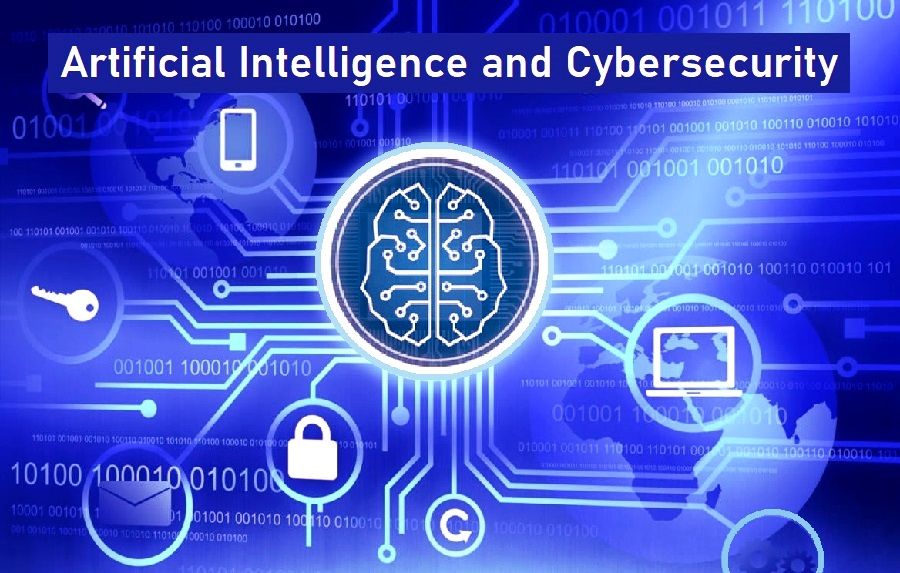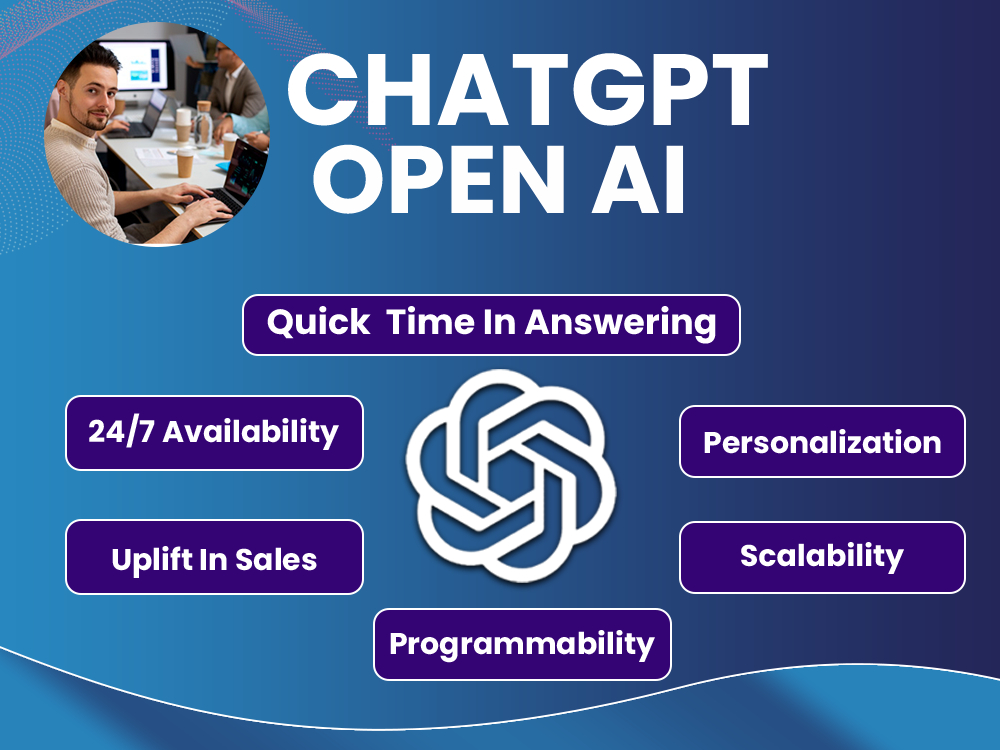Discover how AI is revolutionizing business cybersecurity, enhancing protection against cyber threats, and fortifying data integrity. Learn about the latest advancements, tools, and strategies in AI-driven cybersecurity solutions.
AI Revolutionizing

How AI is Improving Business Cybersecurity?
Table of Contents
Introduction:
In an era dominated by digital transformation, cybersecurity remains a paramount concern for businesses worldwide. As cyber threats grow in complexity and frequency, traditional security measures alone are no longer sufficient to safeguard sensitive data and protect against sophisticated attacks. Here’s where Artificial Intelligence (AI) emerges as a game-changer, empowering businesses with advanced cybersecurity solutions that adapt, learn, and respond dynamically to ever-evolving threats. (AI Revolutionizing)
With AI’s ability to analyze vast amounts of data, recognize patterns, and predict potential security breaches, businesses can fortify their defenses and proactively detect and counter cyber threats. In this comprehensive article, we delve into the ways AI is reshaping business cybersecurity and explore the latest tools, methodologies, and practices that demonstrate its efficacy.

How AI is Improving Business Cybersecurity?
AI-driven cybersecurity solutions offer several significant advantages that elevate the overall security posture of businesses. Here are some key ways in which AI is revolutionizing business cybersecurity:
1. AI-Powered Threat Detection and Prevention
AI-driven security systems employ machine learning algorithms to identify and analyze patterns indicative of potential security threats. By continuously monitoring network activity, AI can detect anomalies and indicators of compromise that might evade traditional security tools. This proactive approach enables businesses to prevent cyberattacks before they cause significant damage.
2. Adaptive Security Measures
AI-based cybersecurity solutions have the capability to adapt to changing circumstances and emerging threats. Unlike conventional security software, which relies on static rule sets, AI algorithms can learn from new data and adjust their responses accordingly. This adaptability ensures that cybersecurity measures stay up-to-date and effective in the face of rapidly evolving threats.
3. Intelligent Incident Response
In the event of a cyber incident, AI can facilitate rapid and intelligent incident response. By automating certain incident response procedures, AI reduces the burden on cybersecurity teams and accelerates the containment and mitigation of threats. This capability is particularly crucial during high-pressure situations, where time is of the essence.
4. Predictive Analytics for Risk Assessment
AI’s predictive analytics capabilities allow businesses to assess their cybersecurity risks comprehensively. By analyzing historical data and current trends, AI can predict potential vulnerabilities and prioritize risk-mitigation efforts, ensuring that businesses allocate their resources effectively.
5. Enhanced Data Protection
AI-powered encryption and data protection solutions offer robust safeguards for sensitive information. These advanced encryption techniques make it exceedingly difficult for malicious actors to gain unauthorized access to critical data, adding an extra layer of protection to valuable assets.
6. Behavioral Analysis
AI can conduct in-depth behavioral analysis of users and devices within a network. By establishing baseline user behavior, AI can quickly detect anomalous activities, such as unauthorized access attempts or data exfiltration, raising immediate alerts for investigation.
7. Cybersecurity Training and Awareness
AI can be instrumental in enhancing employee cybersecurity training and awareness programs. By simulating real-world cyber threats, AI-based training platforms empower employees to recognize and respond to potential risks, reducing the likelihood of successful phishing attempts and other social engineering attacks.
8. Vulnerability Management
AI-driven vulnerability management tools can scan networks and systems for potential weaknesses. These tools prioritize vulnerabilities based on severity, allowing businesses to patch critical vulnerabilities promptly and minimize exposure to potential threats.
9. Network Traffic Analysis
AI can analyze network traffic in real-time, identifying suspicious patterns or activities that may signify ongoing cyberattacks. This capability aids in the early detection and containment of threats before they escalate into full-scale breaches.
10. Fraud Detection and Prevention
For businesses operating online platforms, AI-driven fraud detection systems can identify and prevent fraudulent activities, protecting both the company and its customers from financial losses and reputational damage.
11. Cloud Security Enhancement
As more businesses move their operations to the cloud, AI plays a crucial role in strengthening cloud security. AI-driven tools can monitor cloud environments for unauthorized access attempts and protect data stored in cloud repositories.
12. Zero-Day Threat Protection
AI-powered security solutions can detect and respond to zero-day threats, which are previously unknown vulnerabilities exploited by attackers. This capability minimizes the window of exposure and prevents significant damage.
13. AI-Based Antivirus Software
Traditional signature-based antivirus solutions struggle to keep up with the volume of new malware. AI-based antivirus software utilizes machine learning to recognize and stop new threats, providing more effective protection against emerging malware strains.
14. Identity and Access Management
AI-driven identity and access management systems can verify user identities and control access to sensitive data and resources more efficiently. This reduces the risk of unauthorized access and potential data breaches.
15. Real-Time Security Analytics
AI’s real-time analytics enable businesses to gain deeper insights into security incidents as they unfold. These insights empower quick decision-making and facilitate timely responses to emerging threats.
16. Threat Hunting Automation
AI can automate the process of threat hunting, identifying hidden threats that may evade traditional security controls. This proactive approach allows businesses to stay one step ahead of cyber adversaries.
17. Secure Software Development
AI can be integrated into the software development lifecycle to identify and eliminate security vulnerabilities early in the development process. This practice ensures that applications are secure from the outset.
18. IoT Security
The proliferation of Internet of Things (IoT) devices introduces new security challenges. AI can help secure IoT networks by monitoring device behavior, detecting anomalies, and responding to potential threats.
19. Insider Threat Detection
AI-powered insider threat detection systems can identify suspicious activities by employees or other insiders who might pose a risk to the organization. This capability helps prevent data leaks and other internal security breaches.
20. AI-Based Cybersecurity Training for Professionals
Cybersecurity professionals can benefit from AI-based training platforms that offer immersive simulations and real-world scenarios to enhance their skills and keep abreast of the latest threats and defensive strategies.
21. Secure Supply Chain Management
AI can improve supply chain security by analyzing data and identifying potential risks within the supply chain. This approach enhances the integrity of products and reduces the likelihood of supply chain disruptions due to cyber threats.
22. AI-Enhanced User Authentication
AI-driven user authentication methods, such as biometrics and behavioral analytics, offer more robust and secure authentication processes, reducing the risk of unauthorized access to critical systems and data.
23. AI-Generated Security Reports
AI can generate comprehensive security reports that provide valuable insights into an organization’s security posture, helping business leaders make informed decisions to bolster cybersecurity.
24. Continuous Security Monitoring
AI enables continuous security monitoring, ensuring that businesses remain vigilant against emerging threats and potential vulnerabilities at all times.
25. Advancements in AI for Cybersecurity
The field of AI-driven cybersecurity is constantly evolving, with researchers and developers working on innovative solutions to combat emerging threats. These advancements promise even greater effectiveness and resilience in defending against cyberattacks.
How AI Revolutionizing Businesses (Video)
The AI Revolutionizing of AI is transforming the landscape of businesses across the globe. With its unprecedented capabilities, AI is redefining the way companies operate, making them more efficient, agile, and competitive. One of the key areas where AI is making a significant impact is in data analysis and decision-making. AI-powered algorithms can process vast amounts of data in real-time, extracting valuable insights and patterns that human analysts might miss, leading to smarter and data-driven decision-making.
Additionally, AI-driven automation is streamlining processes and reducing the need for manual intervention, freeing up human resources to focus on more strategic tasks. Moreover, AI is enhancing customer experiences by personalizing interactions and tailoring services to individual preferences, thus fostering brand loyalty. As AI continues to advance, its potential to AI Revolutionizing businesses will only grow, leading to more innovative solutions and reshaping industries across sectors. Embracing AI is becoming crucial for companies looking to stay competitive in the rapidly evolving business landscape of the future.
AI revolutionizing businesses across various industries, bringing about transformative changes in the way companies operate, make decisions, and engage with their customers. This groundbreaking technology has rapidly gained momentum in recent years, thanks to its ability to analyze vast amounts of data and extract valuable insights that were previously beyond human capabilities. One of the key areas where AI has made a significant impact is in data analysis and predictive modeling. By leveraging AI algorithms and machine learning techniques, businesses can now harness the power of big data to identify patterns, trends, and correlations, enabling them to make more informed and data-driven decisions.
Moreover, AI has revolutionized customer experience and engagement. Through AI-powered chatbots and virtual assistants, companies can provide real-time support and personalized interactions to their customers, enhancing customer satisfaction and loyalty. These virtual agents can handle routine inquiries, freeing up human resources to focus on more complex tasks and strategic initiatives. AI-driven recommendation engines are also transforming the way businesses offer products and services to their customers, by suggesting personalized choices based on individual preferences and past behaviors, thereby increasing sales and revenue.
In addition to customer-facing applications, AI is transforming internal business operations as well. Organizations are increasingly adopting AI Revolutionizing for automating repetitive tasks, streamlining processes, and optimizing workflows. This not only leads to improved efficiency and cost savings but also empowers employees to focus on creative problem-solving and strategic thinking. AI-driven analytics and insights are also being utilized to optimize supply chain management, inventory forecasting, and resource allocation, leading to reduced wastage and improved resource utilization.
Another significant area of AI Revolutionizing impact is in marketing and advertising. With AI-powered tools, businesses can now target specific audiences with precision, creating personalized marketing campaigns that resonate with individual customers’ preferences and behaviors. This level of customization and targeting can significantly improve the return on investment for marketing efforts, as it ensures that the right message reaches the right audience at the right time.
AI’s influence on the healthcare industry is also noteworthy. From diagnosing diseases and medical imaging analysis to drug discovery and treatment recommendations, AI revolutionizing healthcare by augmenting the capabilities of medical professionals and improving patient outcomes. The ability of AI to process vast amounts of medical data quickly and accurately enables faster diagnoses and more effective treatments.
Moreover, AI-driven predictive maintenance has AI Revolutionizing asset-heavy industries like manufacturing and transportation. By analyzing sensor data, AI algorithms can predict equipment failures before they happen, allowing businesses to perform maintenance proactively, minimize downtime, and optimize maintenance costs.
However, the widespread adoption of AI Revolutionizing also brings its share of challenges. Concerns about data privacy, security, and ethical use of AI technologies must be addressed to build trust among consumers and stakeholders. Businesses must ensure that AI algorithms are transparent, explainable, and free from biases to avoid potential discrimination and fairness issues.
In conclusion, the AI Revolutionizing is well underway, transforming businesses across industries in unprecedented ways. From data analysis and customer engagement to operations optimization and healthcare advancements, the integration of AI is reshaping business landscapes and opening up new possibilities for innovation and growth. As technology continues to evolve, companies that embrace AI responsibly and strategically are likely to gain a competitive edge in the ever-changing business landscape.


